Project Portfolio Overview
My project portfolio showcases my commitment to creating engaging, inclusive learning experiences that transform traditional content through evidence-based pedagogical principles. I design learning environments where knowledge is built collaboratively and not just delivered. Drawing from my background in both university teaching and educational development leadership, I design experiences that balance academic rigor with accessibility and student engagement.
With experience spanning both classical humanities and technical disciplines, I bring a unique perspective that combines rigorous academic tradition with innovative educational approaches. My journey from university lecturer to curriculum manager shaped my belief that learning happens through active engagement, critical thinking, and inclusive design. I'm passionate about helping educators implement evidence-based teaching strategies that recognize diverse learning needs while maintaining academic rigor, whether in a classroom discussion about Greek tragedy or a workshop on workplace safety protocols.
The featured projects below represent my work across multiple dimensions of educational development, from comprehensive course redesigns that incorporate diverse cultural perspectives to faculty workshops that build teaching confidence with practical strategies. Each project reflects my approach to equitable learning, using Universal Design, retrieval practice, and thoughtful assessment. Whether reimagining a classics course or helping educators navigate emerging AI technologies, my work centers on creating learning environments that adapt to diverse student needs while maintaining high academic standards.
My Approach
When I'm not designing curriculum or leading workshops, you might find me seeking nirvana on a bicycle or introducing my three boys to new adventures. That same curiosity that pushes me further out of the city also shapes my educational work, where I balance structure with experimentation (especially with new tech and ideas).
I approach educational design with both humility and evidence-based confidence. One of the most powerful phrases in teaching is: "I don't know, but I'll find out." It's something I try to model in every workshop. This openness to continuous learning, combined with a commitment to practical, accessible solutions, defines my collaboration style.
Recent work includes experimenting with AI-powered educational experiences, such as creating virtual study groups where learners collaborate with AI-powered peers. These projects push the boundaries of traditional course design while maintaining focus on authentic learning outcomes and practical application.
My experiences have shown me that learning happens at the intersection of challenge and support. From teaching Latin to helping safety instructors adopt new technologies, I've seen how learners thrive when they feel both stretched intellectually and supported in their journey.
Featured Projects
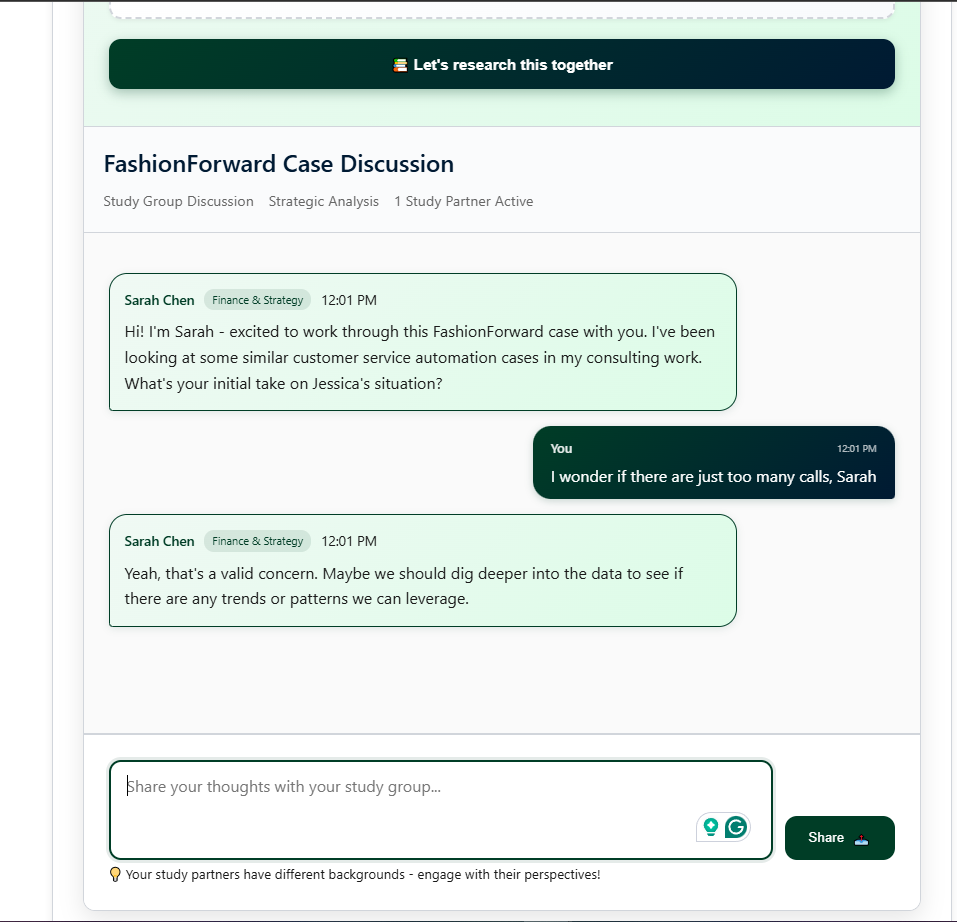
AI Chatbot Strategy Course
A comprehensive three-phase learning experience that takes learners from business case analysis to hands-on chatbot implementation. This course combines strategic decision-making with practical AI tool usage through collaborative virtual study groups.
Features virtual MBA peers powered by OpenAI, real-world retail scenarios, and step-by-step implementation using Chatbase. Learners analyze FashionForward's customer service crisis, collaborate with AI-powered study partners, then build a working chatbot prototype.
Learning Innovation Highlights:
- • Virtual study group with AI-powered MBA peers (Sarah, Marcus, Priya)
- • Three-phase progression: Analysis → Collaboration → Implementation
- • Real business case with authentic decision-making scenarios
- • Hands-on chatbot building using industry tools
- • Strategic assessment and personalized implementation roadmaps
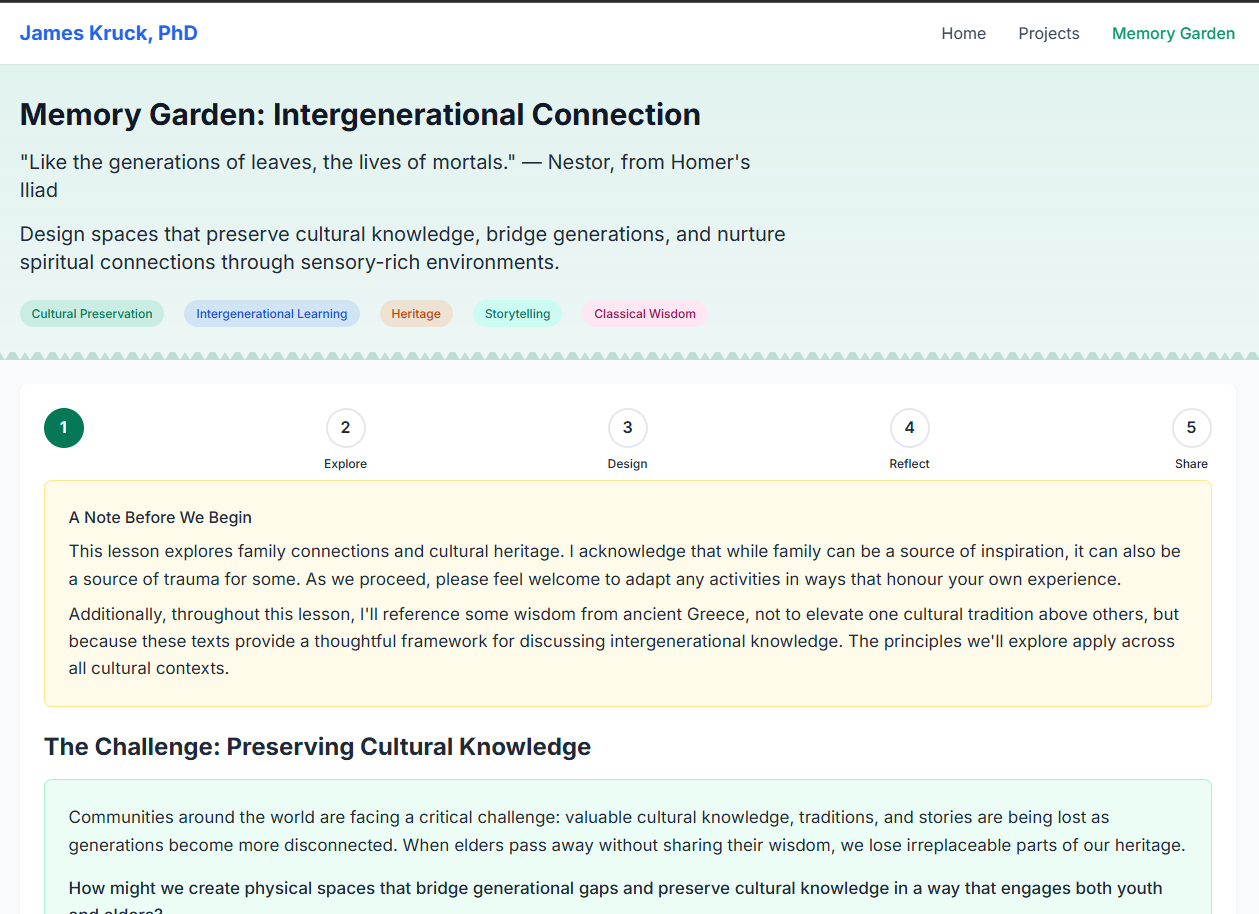
Memory Garden: Intergenerational Connection
Developed for an Instructional Skills Workshop, this lesson challenged me to move beyond traditional outcomes and engage the affective and spiritual domains of learning.
Introduced by a line from the Iliad, this lesson includes an interactive garden design tool, reflection prompts, and guidance for creating memory-rich spaces that support intergenerational storytelling.

GenAI in Teaching & Learning Workshop
A four-part workshop that helps educators explore generative AI through hands-on activities and practical curriculum design.
Created in response to the growing student use of tools like ChatGPT (45%) compared to lower faculty adoption (15%), this project supports educators in understanding and using AI effectively.

UDL Plus One Workshop
A hands-on workshop introducing Universal Design for Learning through small, high-impact "Plus One" course enhancements.
Includes practical exercises to help faculty create multiple means of representation, engagement, and expression—aligned with UDL principles.
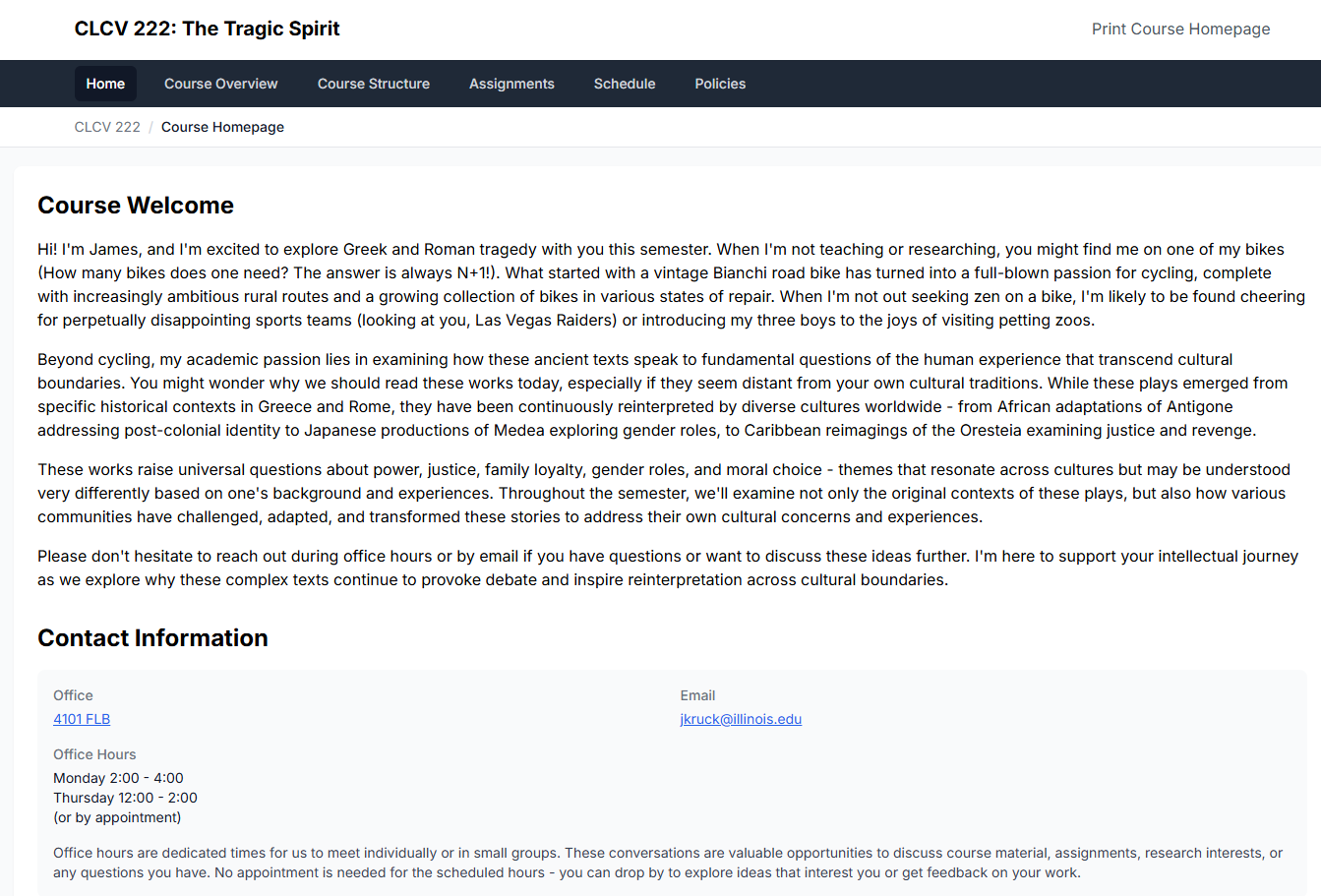
Course Redesign: The Tragic Spirit
In this project, I revisited an old syllabus from my time teaching at the University of Illinois Urbana-Champaign. This redesign reflects my shift from "sage on the stage" to a facilitator of student-centred, inclusive learning. Drawing on my experience with diverse student groups, I transformed the course to incorporate postcolonial perspectives, flexible assessments, and multiple pathways for engaging with classical texts, while maintaining the academic rigor that makes these works valuable.
The redesign focused on competency-based learning, incorporating retrieval practice, flexible assessment options, and multiple pathways for student engagement with classical texts and concepts.
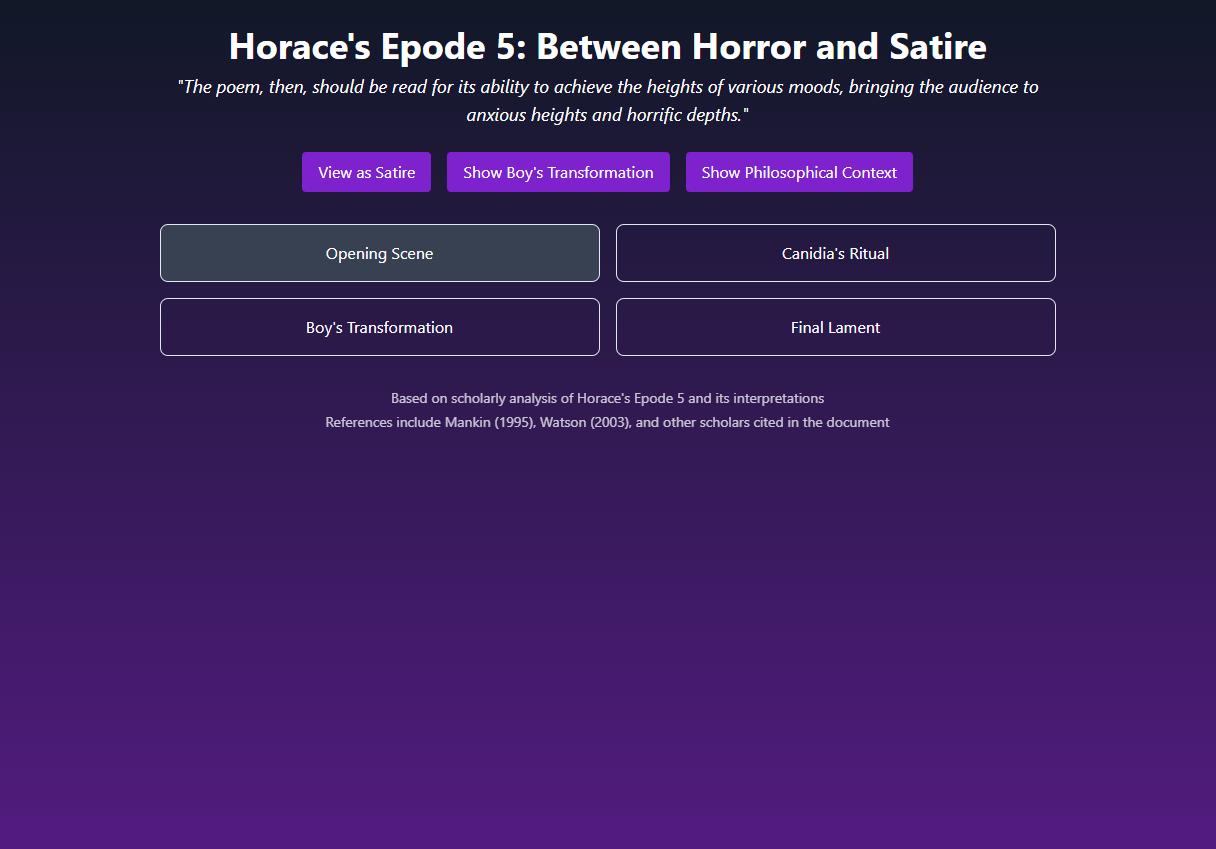
Interactive Learning Artifacts Showcase
A collection of interactive educational tools developed through AI collaboration, demonstrating how educators can create custom learning experiences without traditional coding expertise. This showcase includes simulations, decision scenarios, and analysis tools for various disciplines.
Featured artifacts include a Forklift Safety Simulation, LOTO Decision Scenario, and Classical Literature Analysis tools (a mixed bag of interests!). While these artifacts are far from perfect, they represent what can be done with GenAI with a few prompts.
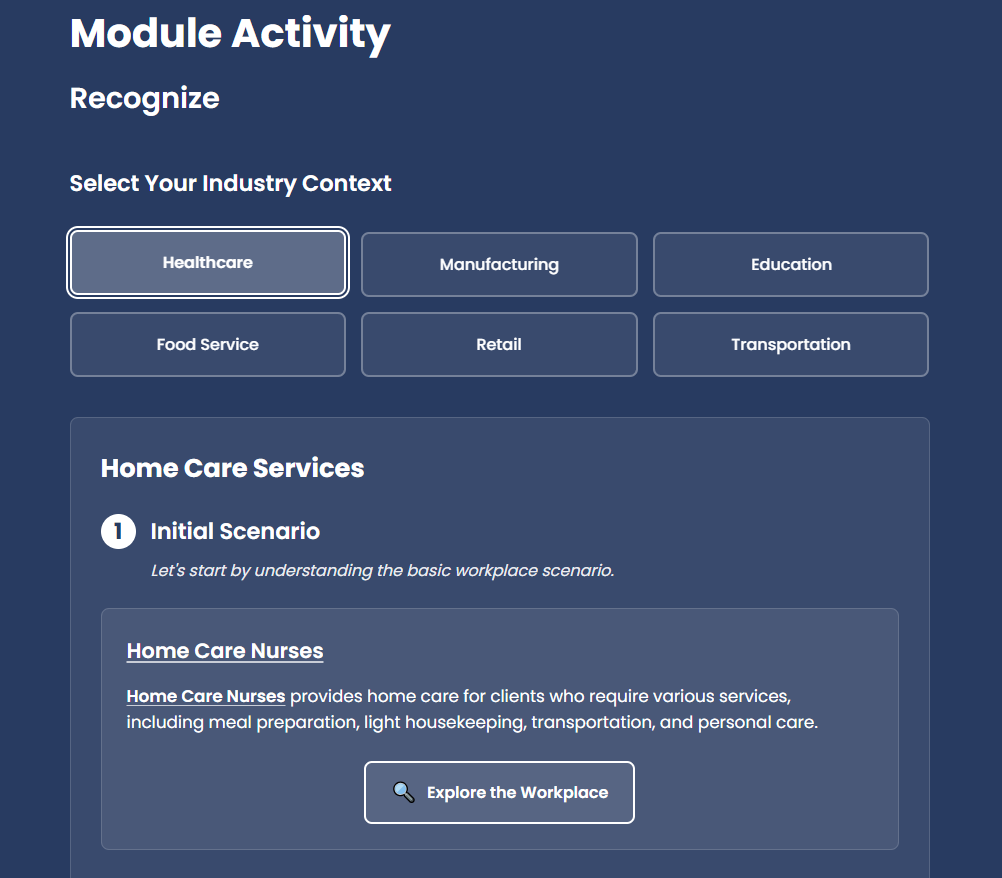
AI-Powered Adaptive Case Studies
An innovative solution to a common workplace training challenge: how to deliver relevant, industry-specific safety scenarios when training time is limited. This interactive tool adapts biological and chemical hazard case studies across six different industries.
The AI Development Process:
Starting with a single case study about oxygen tank transport in home care, I used AI to generate parallel scenarios for manufacturing, education, food service, retail, and transportation sectors. The initial prompt focused on maintaining consistent learning objectives while varying the context authentically.
The tool required minimal manual coding adjustments after the AI generation (primarily reiterating on core concepts and fixing some JavaScript structure issues). This project demonstrates how AI can rapidly prototype educational tools that would traditionally require significant development time.
Features progressive disclosure, interactive workplace investigations, and guided risk assessment exercises that help learners identify hazards and apply control measures in familiar industry contexts.
Curriculum Design
My curriculum design work spans university classrooms and technical workplace training. I aim to create learning experiences that balance academic rigour with accessibility, creating environments where students feel represented and are challenged to think in new ways. Key areas of my expertise include:
Outcome-Based Course Design
Designing courses with clear learning outcomes that guide assessments and activities through constructive alignment.
Authentic Assessment Design
Creating assessments that reflect real-world applications, encourage feedback, and support deeper learning.
Program Mapping
Aligning course outcomes with program-level competencies to ensure comprehensive curriculum coverage and progressive skill development.
Inclusive Curriculum Development
Using Universal Design for Learning to create flexible, accessible learning paths for diverse learners.